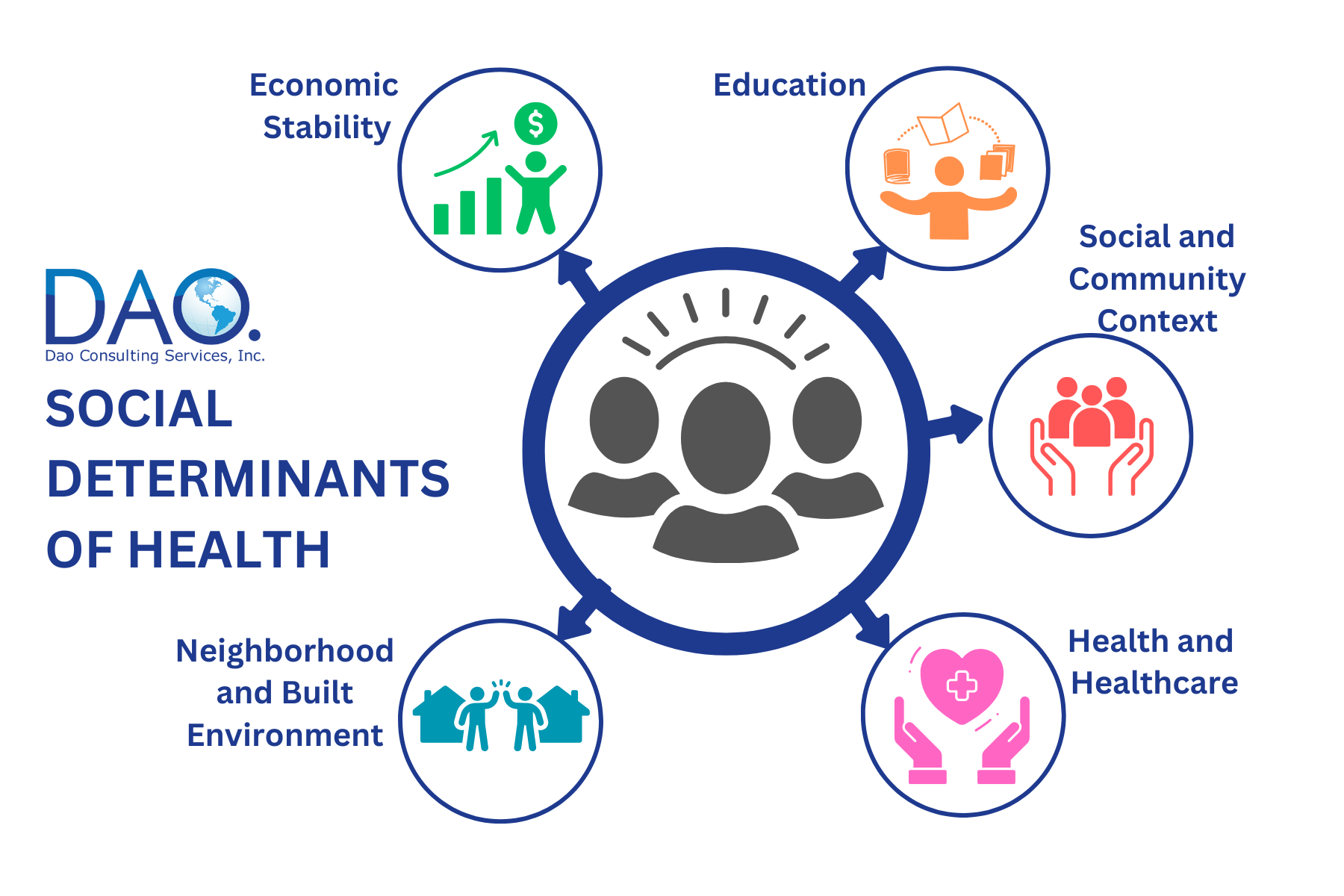Navigating the Social Determinants of Health: A Holistic Approach to Wellness
In recent years, health has evolved beyond traditional medical care, embracing a broader framework known as the Social Determinants of Health (SDOH). While clinical services remain essential, they account for only a small part of overall well-being. To promote long-term health, it is crucial to recognize the broader social, economic, and environmental factors influencing health and implement holistic strategies.
What Are the Social Determinants of Health (SDOH)?
The World Health Organization (WHO) defines SDOH as “the conditions in which people are born, grow, live, work, and age.” These conditions, shaped by the distribution of resources, power, and opportunities, include:

- Economic Stability – Employment, income, and financial security shape access to healthcare, housing, and nutritious food.
- Education – Quality education leads to better job opportunities, health literacy, and healthier lifestyle choices.
- Social and Community Context – Strong social connections and community support promote mental and emotional well-being.
- Health and Healthcare – Access to quality healthcare services and health literacy is essential for preventing illness and managing health.
- Neighborhood and Built Environment – Safe housing, transportation, and access to healthy food and clean air are vital for good health.
Why Addressing SDOH Matters
Medical care alone cannot solve many health challenges. For instance, treating diabetes is difficult if patients lack access to healthy food or safe spaces for exercise. Moreover, disparities in SDOH contribute to health inequities, with marginalized populations facing barriers in education, employment, and housing. Addressing these determinants helps healthcare organizations promote equitable, sustainable, and person-centered care. This shift reduces chronic diseases, improves well-being, and lowers healthcare costs.
Practical Steps to Navigate SDOH
- Adopt a multi-sectoral approach by collaborating across sectors like education, housing, and social services to tackle complex health challenges.
- Tailor solutions to communities based on needs assessments and engage communities to co-create culturally relevant solutions.
- Empower individuals through education on the impact of SDOH on their health and foster informed decision-making.
- Advocate for policies promoting change such as affordable nutritious food and accessible healthcare.
- Measure and evaluate data to assess the effectiveness of interventions and refine strategies as needed.
In Conclusion
Addressing SDOH requires a shift from treating illness to promoting well-being. Healthcare organizations play a crucial role by designing strategies that encompass the full range of health determinants. Through collaboration, education, and advocacy, we can reduce health inequities and build healthier communities where everyone has the opportunity to thrive.
Need help integrating SDOH strategies into your organization or projects? Contact us today for a consultation!
Website: www.daoconsultingservices.com | Email: helen@daoconsultingservices.com | Telephone: (201) 686-7152
ARE YOU READY FOR TRANSFORMATION?
As the healthcare industry continues to transform, healthcare organizations need to be ready to adapt. At Dao Consulting Services, Inc., our focus is helping you achieve your operational, clinical, and quality goals by navigating quality and regulatory challenges, and adapting practical and consistent solutions that can be implemented and sustained at all levels of the organization.
